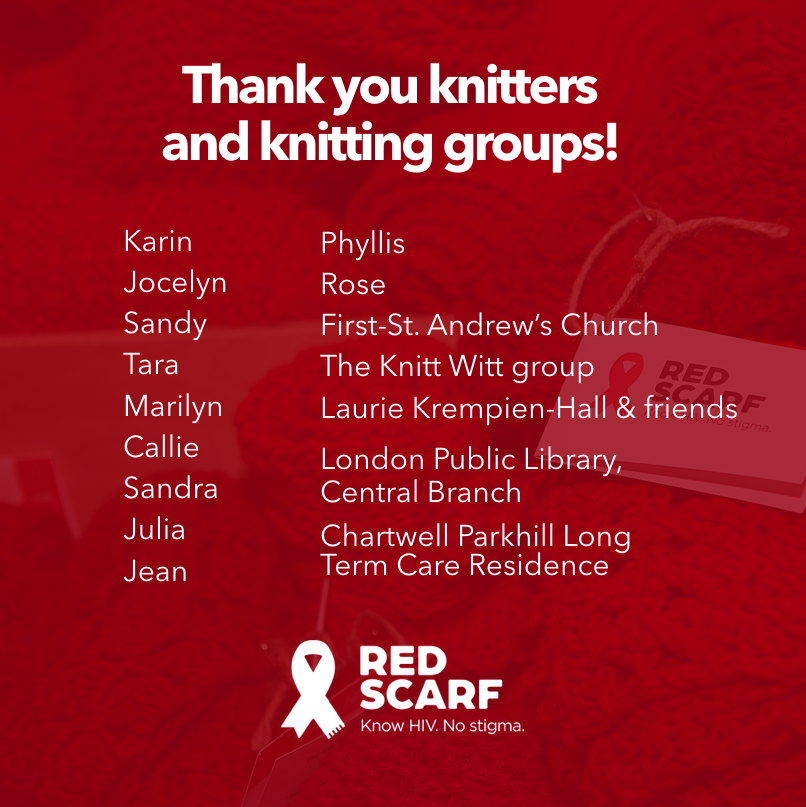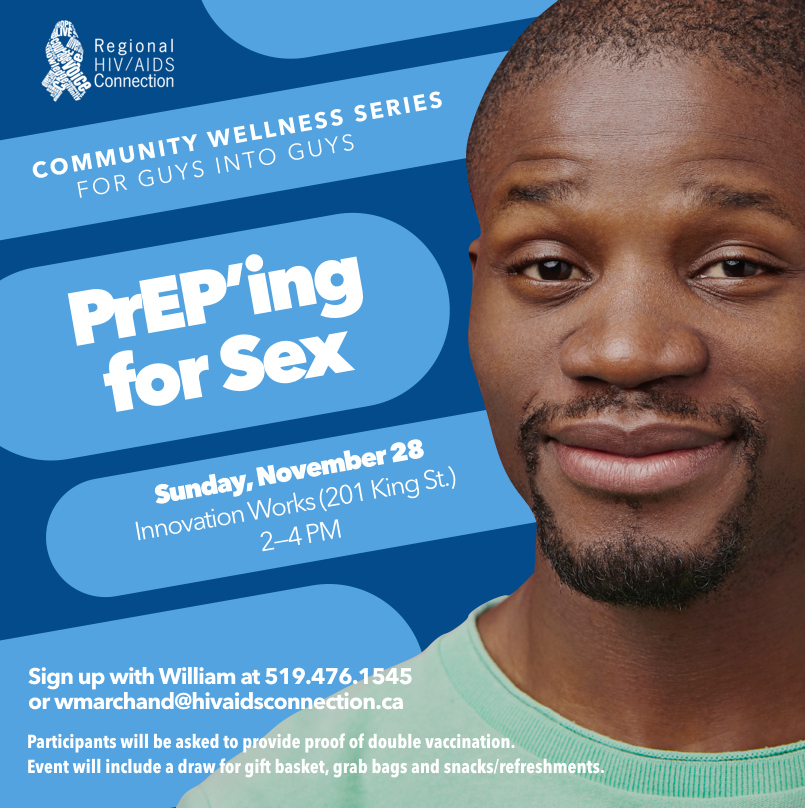What’s New?
Regional HIV/AIDS Connection (RHAC) is pleased to announce our newest location at 602 Queens Avenue, London, ON as part of a new community service hub.
Over the past 2 years of the pandemic, London Cares Homeless Response Services, the Sisters of St. Joseph Hospitality Centre, and RHAC have worked together to envision a better way to provide a safe, welcoming space for people experiencing homelessness and other barriers to wellness, community and belonging.
Now, our three agencies are coming together to create a community hub aimed at addressing housing, basic needs, health care, and psychosocial wellness needs. This hub is the first of it's kind in London, and aims to effectively link people to social services and supports under one welcoming roof. We are proud to be creating this supportive environment built on the core values of dignity, deep hospitality, inclusive community, social justice, persistence, and hope
Please note: RHAC’s Carepoint Consumption and Treatment and Counterpoint Harm Reduction Services will remain at 186 King Street until relocating to 446 York Street in 2022. Our John Gordon Home program will remain at 596 Pall Mall Street.
Effective January 4, 2022, the following RHAC services will be accessible at 602 Queens Avenue (with COVID-19 safety measures still in place):
- HIV/HCV client support services: Support services for people living with HIV/HCV (treatment and care including practical, basic needs and psychosocial supports), Country Cupboard food security program, and peer activities/programming.
- Education and prevention services: General and population-specific education and prevention programs (including our Open Closet program for 2SLGBTQIA+ youth), sexual health and wellness services and resources, HIV/STBBI testing, PrEP/PEP/HIV prevention and related services, and information and wellness programs/workshops.
- Community relations: Communications, regional community development, volunteering and fund development (i.e.: events, donor giving, third party fundraising, and merchandising).
- Harm reduction outreach: Mobile outreach services for people who use substances (including harm reduction gear delivery and recovery-related services) across London-Middlesex, Oxford and Huron counties.
- Administrative supports: The office of the Executive Director, operations and human resources.
- On-site partner services: Ontario Aboriginal HIV/AIDS Strategy (OAHAS), and Dr. Margaret Peltz (Psychiatrist).
While we are still under-construction at our new 602 Queens Ave. location:
- Please address physical mail to 186 King Street
- A new phone system has been implemented across all RHAC locations, with new staff extensions. Please listen carefully to system instructions.
- For 602 Queens on-site service access an appointment is currently required. Please contact relevant staff member to arrange appointment/access. If unable to reach designated staff, please contact general administration for access assistance.
RHAC’s other service locations:
-
John Gordon Home (Supportive Housing Program): 596 Pall Mall
-
Counterpoint (Needle and Syringe Program): 186 King Street
-
Carepoint (Consumption and Treatment Services): 186 King Street
Thank you to our community for supporting our annual Red Scarf campaign!
On behalf of all of us at Regional HIV/AIDS Connection, thank you to those who attended and contributed to our World AIDS Day vigil featuring Pride Men's Chorus London. We hope you will continue to honour and hold those we have lost in your hearts, and that you will also continue to stand in solidarity with those living with HIV in our community.
Thank you to everyone who wore a Red Scarf on World AIDS Day in solidarity with those living with HIV in our community. We are so grateful to each and every one of you for standing up to stigma, raising awareness, and making a donation in support of people living with, affected by and at-risk for HIV.
If you would still like to support RHAC's 2021 Red Scarf campaign, you can make a donation in support of RHAC's free programs and services at: www.canadahelps.org/en/charities/rhac/p2p/redscarf2021/
Thank you so much to our Red Scarf knitters from all across the counties for helping to build awareness and fight HIV-related stigma, including:
-
Karin
-
Jocelyn
-
Sandy
-
Tara
-
Marilyn
-
Callie
-
Sandra
-
Julia
-
Jean
-
Phyllis
-
Rose
-
First-St. Andrew’s Church
-
The Knit Wits
-
Laurie Krempien-Hall and friends
-
London Public Library, Central Branch
-
Chartwell Parkhill Long Term Care Residence
We'd also like to thank the following local businesses for supporting Red Scarf this year:
-
David E. White
-
Regency Florists
-
Nova Vita Hair Studio & Esthetics
- Wabi Sabi Hair + Body


Press play on World AIDS Day. RHAC has put together a list of short films, documentaries and series to learn more about the HIV/AIDS movement, past and present. Check out our curated list below for what to watch, and where to watch it, in honour of World AIDS Day (December 1).
- World AIDS Day with RHAC (Video, 2020)
An educational video produced by Regional HIV/AIDS Connection (RHAC) that reflects on the history and lasting legacy of HIV/AIDS activism, art, and community care.
- It’s a Sin (Television Series, 2021)
The acclaimed mini-series follows a group of friends navigating the early HIV/AIDS crisis in the United Kingdom during the 1980s. Available to watch on Amazon Prime Video in Canada.
- How to Survive a Plague (Documentary, 2012)
The Academy Award-nominated film begins at the start of the HIV/AIDS epidemic in New York City, following a group of AIDS activists and founders of the AIDS group ACT UP and their struggle for response from the United States government and medical establishment in developing effective HIV/AIDS medications. Learn more and find out where to watch, here!
- The Colour of Immunity (Video, 1991)
Available on YouTube via the Canadian AIDS Activist History Project. According to its creators, this video was the first HIV/AIDS video produced for and by ACB communities in Canada. Learn more here.
- Anishinabek Nation HIV Video Series (Mini documentaries, 2020)
Produced by the Anishinabek Nation HIV Program, these mini documentaries focus on de-stigmatizing HIV by using the stories of real people and their experiences:
- RNA (Documentary, 2019)
In this short documentary film, Julian, a makeup artist in Toronto shares his story and explores what it means to live with HIV in the current era of the pandemic.
- Positive Women - Exposing Injustice (Documentary, 2012)
Women's voices have rarely been heard on the criminalization of HIV non-disclosure in Canada. This documentary film by the Canadian HIV/AIDS Legal Network and Alison Duke that tells the personal stories of four women living with HIV in Canada who bravely speak out on this important issue.
- Our Bodies Our Business (Documentary 2016)
In commemoration of the International Day to End Violence Against Sex Workers (December 17, 2016), the Triple-X Workers’ Solidarity Association partnered with University of Toronto’s Dalla Lana School of Public Health to premiere Our Bodies Our Business, a video compiling historic footage of sex workers’ rights activists at the 5th International Conference on AIDS in Montreal (1989)
- Strong Medicine (Educational video, 2018)
An educational video developed by the Canadian Aboriginal AIDS Network and CATIE, with and for Indigenous people living with HIV. Strong Medicine weaves together Indigenous knowledges of culture and wellness and Western knowledge of HIV testing and treatment to share accurate information about HIV testing and treatment.
- June's (Video, 2018)
Directed by Hubert Davis, June's tells the story of Casey House's pop-up restaurant June's HIV+ Eatery, using the words of the HIV+ participants who challenged guests to eat a meal prepared by someone living with HIV.
Dear Community Stakeholder:
During the week of November 29, 2021, Regional HIV/AIDS Connection (RHAC) is moving part of its operation to 602 Queens Ave. Later in the week, we will provide more details on the services that will be available at our new space and other information about our exciting new location. During our move week, there will be phone access disruptions, however you will be able to contact us through email or staff cell phones. We plan to be “open” for business on Monday, December 6th with COVID-19 safety measures still in place.
Please Note: Carepoint Consumption and Treatment Services and Counterpoint Needle Syringe Program will remain at 186 King St. until 446 York Street is ready for occupancy.
Thanks for your understanding and we look forward to serving our community from our new location!
Community Wellness Series for Guys into Guys
This Fall, we're hosting a Community Wellness Series for guys into guys. These special events are the perfect opportunity to come together with community, do something fun, and learn a little more about your sexual health. Are you in?
Check out some of our upcoming events below and register with William at wmarchand@hivaidsconnection.ca or (519) 476-1545.
Please note: All participants will be asked to provide proof of double vaccination for the following events.
PrEP'ing for Sex
Sunday, November 28 (2-4 PM)
Innovation works (201 King St.)
Join us for "PrEP'ing for Sex" to talk about having great sex and preventing HIV with other guys into guys! We'll cover topics like: PrEP, PEP/PIP, other HIV prevention, HIV testing, U=U, hooking up and dating! This event will also include a draw for a gift basket, free grab bags and snacks/refreshments. Sign up with William at 519.476.1545 or wmarchand@hivaidsconnection.ca
Please note: Proof of double-vaccination is required.

Attention: Community Partners/Collaborators, Contractors and Purchased Services,
In response to public health recommendations, Regional HIV/AIDS Connection (RHAC) has instituted a COVID-19 vaccination requirement as part of our ongoing pandemic response.
Effective Friday, November 19, 2021, only persons who are fully vaccinated or who are subject to routine rapid-antigen testing (and receive a negative test result within 72 hours of their attendance) will be permitted to perform services on behalf of RHAC.
Fully vaccinated is defined as having received two (2) doses of an approved COVID-19 vaccine or a combination of COVID-19 vaccines as recognized by Health Canada; and having received the final dose of the COVID-19 vaccine at least 14 days ago.
All contractors and service agreement agencies who perform services with or on behalf of RHAC are impacted by this requirement, as follows:
- Any person who interacts with RHAC clients directly in-person on behalf of RHAC; and/or
- Any person who interacts with RHAC staff who provide direct client care in-person (excludes limited interaction such as deliveries); and
- Services are performed onsite at any RHAC location or temporary service location.
Agencies/Contractors/Community Partners must attest that their onsite personnel/representatives are fully vaccinated and that you have confirmed their vaccination status by viewing their proof of vaccination. Attestation also requires that you ensure any representing individuals who are not fully vaccinated complete a rapid-antigen COVID-19 test within 72 hours before attending an RHAC service location. RHAC has emailed the required attestation documentation to relevant stakeholders.
Should RHAC become subject to mandatory vaccination directives or receive further recommendation/guidance from public health, requirements extended to contracted service agencies/collaborators/partners may change in response. Future changes may include statistical reporting of applicability, compliance, and participation.
We appreciate everyone’s cooperation with this requirement as we strive to maintain the health and safety of everyone serving the RHAC mission.
Regional HIV/AIDS Connection (RHAC) is interested in receiving proposals from qualified individuals/organizations to provide a Diversity and Inclusion Assessment.
View and download the RFP here: RFP - Diversity and Inclusion Assessment
RFP inquiries will be entertained via email during the week of October 18th through to October 22nd at noon.
Completed proposals including a draft work plan with proposed timelines can be emailed to Luke Nocent, Manager of Human Resources at lnocent@hivaidsconnection.ca. Proponents are solely responsible for ensuring Proposals are received prior to the closing date and time of: 4:30 PM on Friday November 5, 2021.
Thank you for your interest and consideration.
All email inquiries must be directed solely to Luke Nocent Manager of Human Resources at lnocent@hivaidsconnection.ca.

RHAC is proud to celebrate 2SLGTBQIA+ communities all year long.
October is officially 2SLGBTQIA+ History Month, and this month we are reflecting on the historical and everyday achievments made by members of the 2SLGBTQIA+ community. This October, and every day, we acknowledge the incredible ways that 2SLGBTQIA+ people make history and contribute to brighter futures.
September 30 is Orange Shirt Day and National Day for Truth and Reconciliation. Today, we honour the children, survivors, families and communities affected by the residential school system. As an organization, we continue to acknowledge the harmful legacy and ongoing impact of atrocities committed against Indigenous communities.
This is the first year that September 30 has been designated a federal statutory holiday. In addition to honouring this day through a circle ceremony and a moment of silence, RHAC will keep our doors and services open to continue providing essential services to community members.
Here are some actions you can consider taking today (and everyday):
- Wear orange, in solidarity, to honour the experiences of the children, survivors, families and communities affected by residential schools. Visit orangeshirtday.org to learn more.
- Review the Truth and Reconciliation Commission’s 94 Calls to Action.
- Listen to the stories and experiences of residential school survivors, including books and media by Indigenous artists, authors and creators.
- Donate to Indigenous-led causes, like Atlohsa Family Healing Services.
- Acknowledge and learn more about the traditional territories you are living and working on. Visit https://www.ontario.ca/page/ontario-first-nations-maps or https://native-land.ca or https://www.caut.ca/content/guide-acknowledging-first-peoples-traditional-territory to get started.

Please join us virtually on Thursday, September 9 from 6-7:30 PM for Regional HIV/AIDS Connection's Annual General Meeting (AGM) as we review our performance during the fiscal year, reflect on key impacts we have made in the community, and the election of new Board members.
Join virtually, via Zoom, here: https://us06web.zoom.us/j/88208213878
Review our 2020-21 Annual General Report here.
